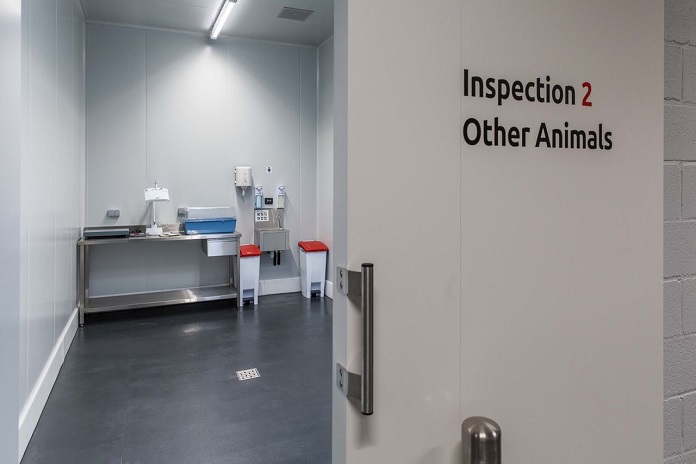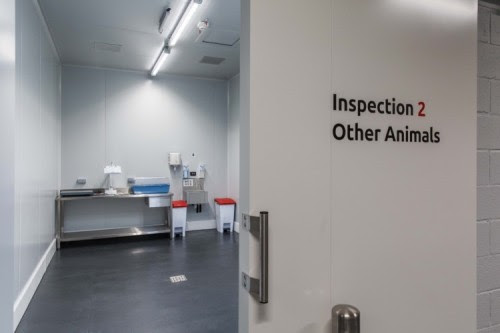
Brussels Airport has inaugurated brand new accommodation for animals. At the Animal Care & Inspection Centre animals will be housed and inspected ahead of their onward journey. The airport has the ambition of setting a new norm for animal care for the continent of Europe.
Brussels Airport has invested in a brand-new ultramodern Animal Care & Inspection Center, in order to offer the best possible service in the field of animal transport. In the center, animals can be housed and checked in comfortable surroundings before they continue their journey.
In this new centre, the temperature, the type of light and the air circulation in each area can be precisely adjusted. The Animal Care & Inspection Center was taken into use on June 1.
Each year, Brussels Airport has thousands of animals among its many passengers. These include pets, police dogs, reptiles and horses, but also a rare visit by a panda.

The Animal Care & Inspection Center includes the new border inspection centre for the Federal Agency for Food Safety, which must check any live animal being imported in order to guarantee public health. Brussels Airport has provided, in collaboration with them, all necessary facilities in order to perform the border controls, according to the highest European standards. The employees of the Agency for Food Safety will have offices on the first floor of this new building so that the work can be performed even more efficiently.
Light, air and temperature adjusted to each animal
When designing this Animal Care & Inspection Center, Brussels Airport went in search of ways of creating the best possible conditions for housing the animals. By streamlining the processes, the throughput time will be short, but the animals that have to stay somewhat longer will be housed in optimum conditions.

There is daylight in each animal accommodation in order not to disturb the biological clock of animals passing through. In addition, Brussels Airport is the first to have developed a unique central system which adjusts the light colour, the temperature and the ventilation for each area in line with the specific needs of each type of animal. In 10 animal accommodations, a menu including categories such as birds, reptiles, fish and ruminants, can be used to create, quickly and efficiently, the ideal climate in the one where the animal is housed.

“We consider the comfort of all our passengers important, including that of the animals that travel via the airport. That is why we have, in consultation with the competent authorities, with experts and with our customers, developed this ultramodern Animal Care & Inspection Center. An animal centre that sets a new standard on a European level in the area of welfare and provides the best possible workplace for the personnel.
With this we ensure that the animals among our passengers are also housed in the very best conditions. A service we are pleased to offer to our customers”, explains Arnaud Feist, CEO of Brussels Airport.
The import and export sides in the building are completely separated from each other, also for the ventilation. In this way, no contamination is possible. The animal accommodations are flexible and can be used by both small and large animal species. On the import side, there are 4 inspection rooms (1 for horses, 2 multifunctional area, and 1 cool room for insects), 7 centrally controlled animal accommodations, and 10 horse stables. For export, there is no mandatory control. On that side, 4 multi-functional treatment rooms are provided and 3 centrally controlled accommodations.
Outside there is also a green area for four-footers who need it, whereby import and export are strictly separated. The additional health measures required by the current corona crisis are, of course, also fully observed. The necessary precautionary measures will be applied so that the animals passing through our airport at the moment are housed in all safety.
Brussels Airport has also aimed to make this building as sustainable as possible. It is fitted with heat transfer pumps, solar panels, a green roof and a rainwater recovery system. The Animal Care & Inspection Center will be operated by dnata and has been taken into use on June 1.










